Invited speakers
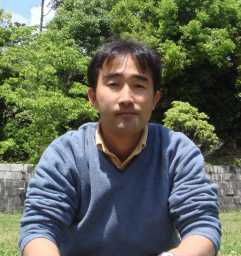
Yasuyuki Sumi
Professor, Future University Hakodate
Huawei Tu
Assistant Professor, La Trobe University, Australia
Shin'ichi Fukuzumi
Doctor, Graduted Keio University
Naomi Yamashita
Primary researcher at NTT Communication Science Laboratories
Sayan Sarcar
Assistant professor, University of Tsukuba
Miwako Doi
Professor, Information Science, Graduate School, Osaka University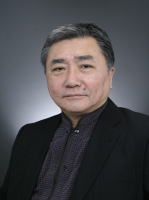
Masaaki Kurosu
Professor, Open University of Japan, President of HCD-Net (Human Centered Design Network), Japan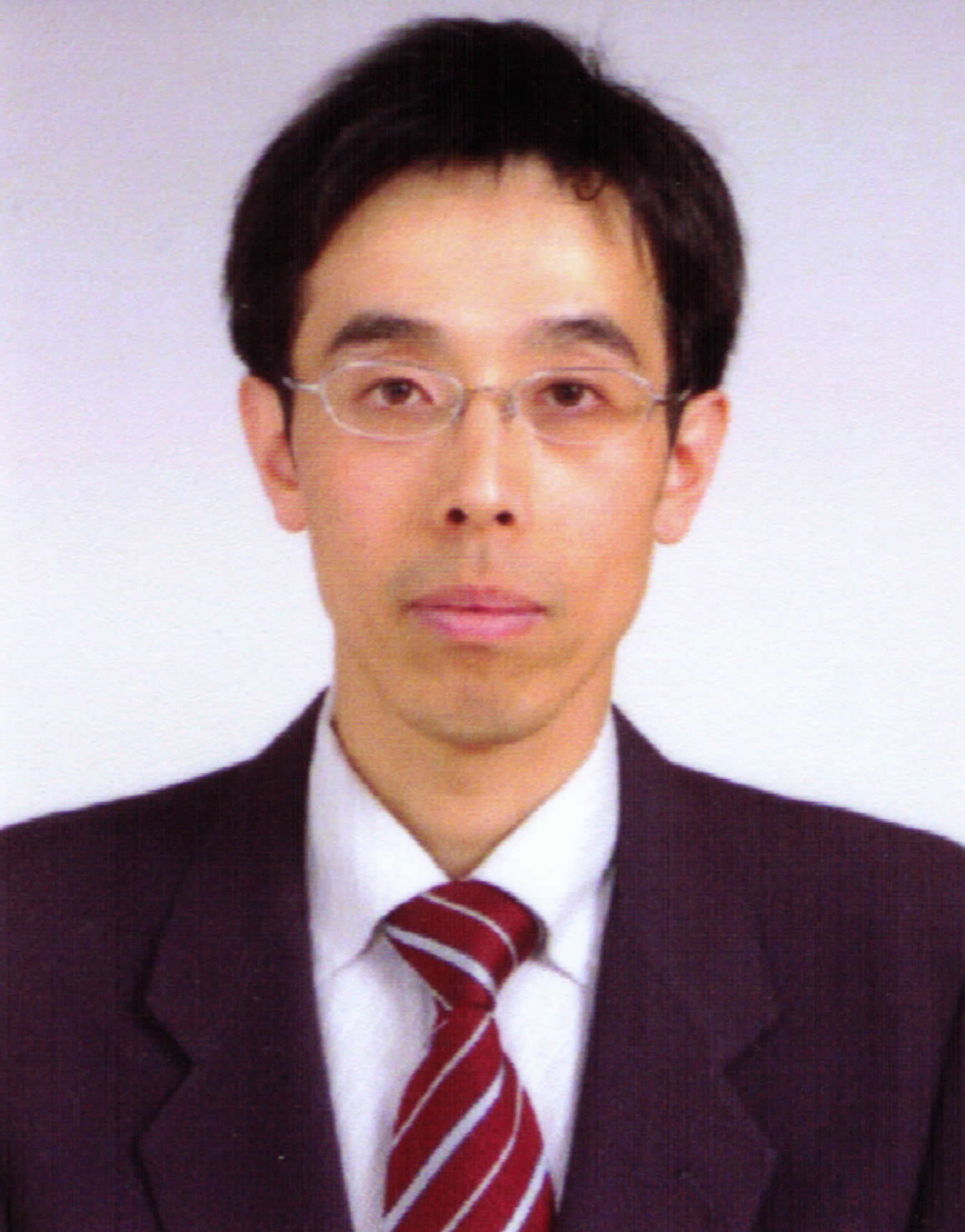
Kentaro Go
Professor, department head at the Computer Science and Engineering Department, University of Yamanashi, Japan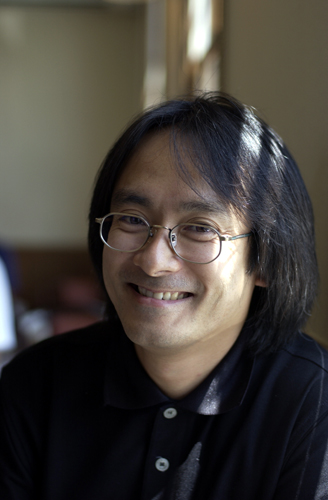
Kazushi Nishimoto
Professor, Center for Knowledge Science Japan Advanced Institute of Science and Technology, Hokuriku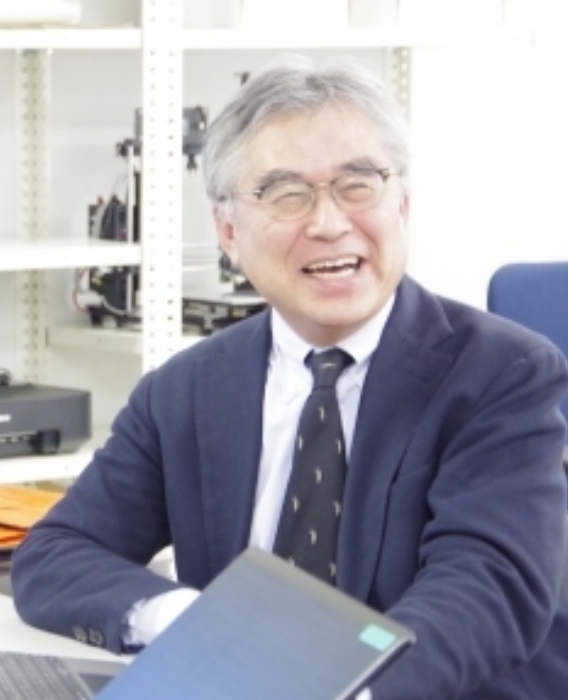
Norikami Kamibayashi
Professor, Musashino University Smart Intelligence Center (MUSIC)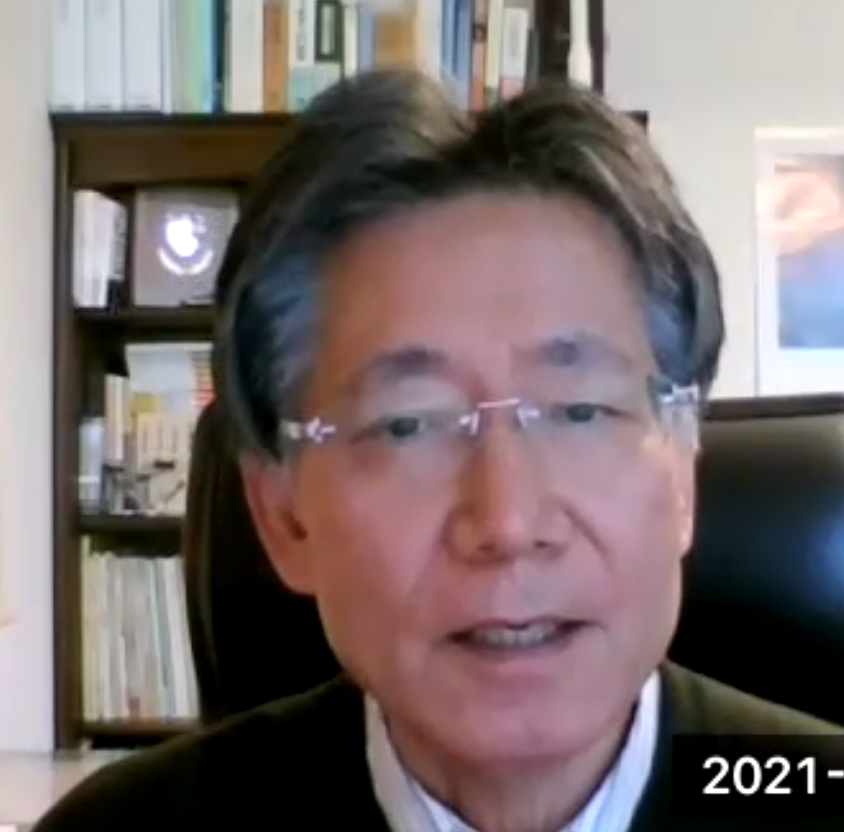
Tatsuo Arai
Professor, Department of Systems Science, Graduate School of Engineering Science, Osaka University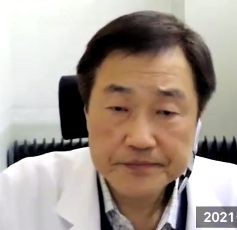
Kaechang Park
Professor,Regional Cooperation Organization, Japan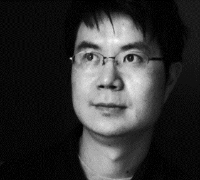
Kibum Kim
Associate Professor, Division of Media, Culture, and Design Technology at College of Computing in Hanyang University ERICA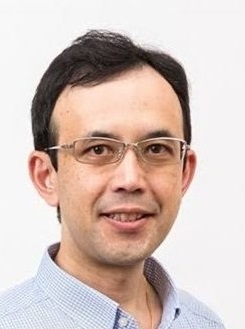
Ruck Thawonmas
Professor, College of Information Science and Engineering, Ritsumeikan University, Japan
Pujana Paliyawan
Senior researcher, Research Organization of Science and Technology, Ritsumeikan University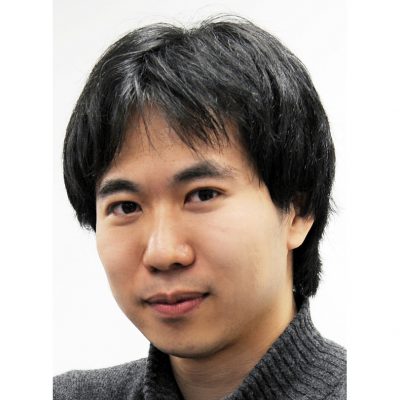
Takuji Narumi
Associate professor, Graduate School of Information Science and Technology, the University of Tokyo.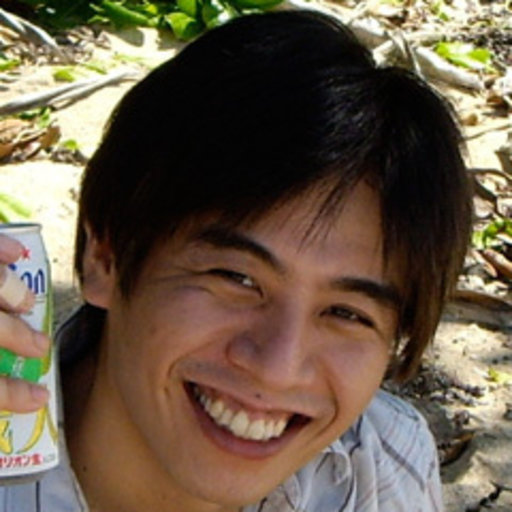
Norimichi Kitagawa
Professor, 立命館大学 BKC社系研究機構 招聘研究教員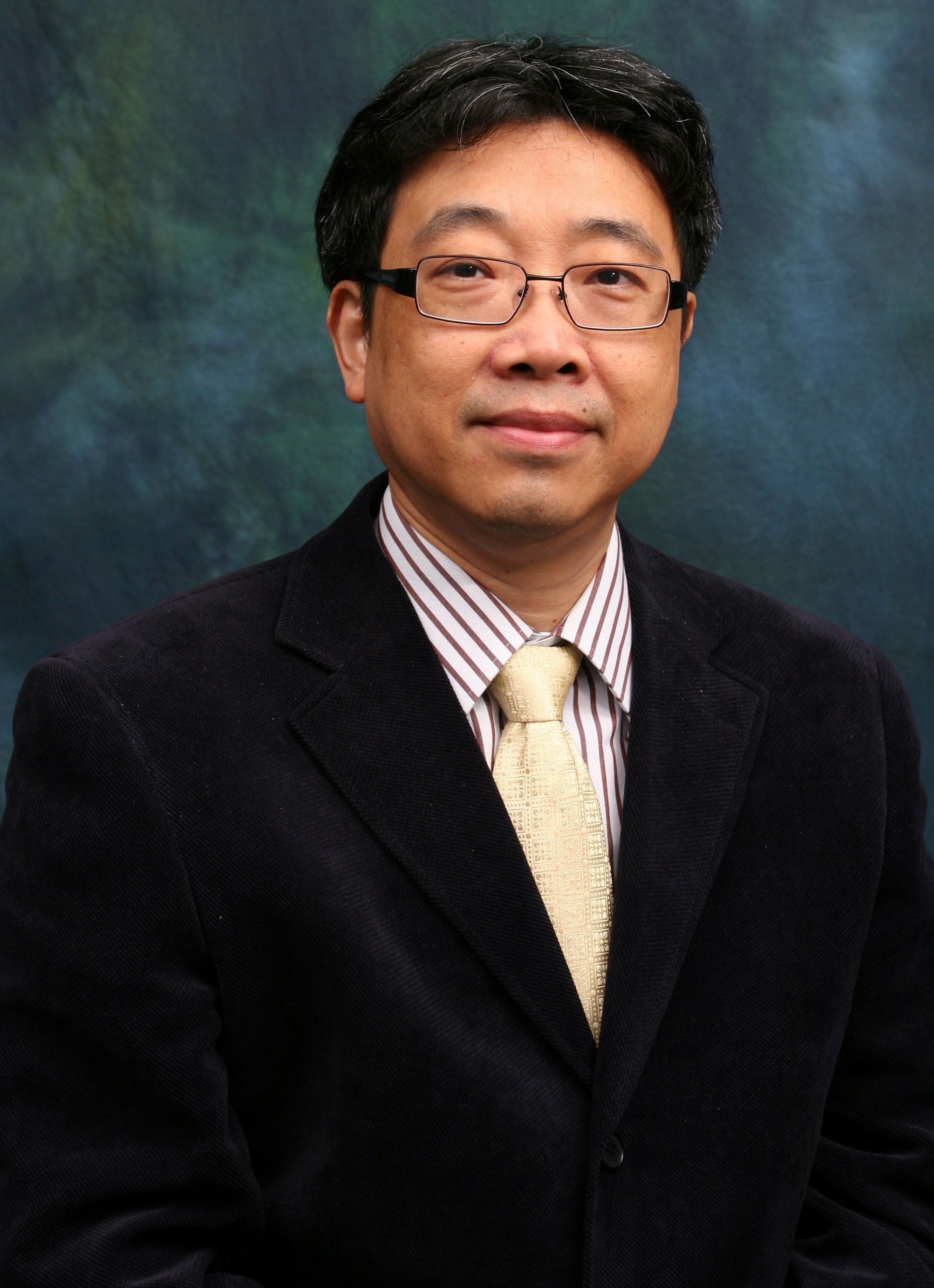
Jiannong CAO
Chair Professor, Distributed and Mobile Computing in the Department of Computing at The Hong Kong Polytechnic University (PolyU).Schedule
体験メディア:体験知の記録・編集・共有
Abstract: 講演者はこれまでの20年間、「体験メディア」という研究分野の開拓に従事してきた。体験メディアは、体験を通した知識の記録や共有を強化するメディア技術に関する研究分野であり、体験の認知と記憶に関する認知科学、日々の体験の記録と共有に関するライフログやウェアラブルコンピューティング、人と人工物の間のコミュニケーションを探求する会話情報学といった様々な分野にまたがる。本講演では、協調体験キャプチャ、車内会話による街の今の可聴化、ラクガキによるカジュアルコミュニケーション、ライフログによる社会活動計測といったプロジェクトを紹介する。
Bio:
角 康之
公立はこだて未来大学・教授
1990年早稲田大学理工学部を卒業、1995年東京大学大学院工学系研究科を修了。博士(工学)。
1995年から2003年にATR研究員。エージェントインタフェースやコミュニティウェアに関する研究に従事。
2003年から2011年に京都大学情報学研究科准教授。インタラクションの理解と支援に関する研究教育に従事。
2011年から公立はこだて未来大学教授。体験メディアやライフログ社会学に関する研究教育に従事。
文部科学大臣表彰・若手研究者賞、IPA未踏ソフトウェア創造事業スーパークリエータ、情報処理学会長尾真記念特別賞などを受賞。
Direct Finger Touch for Human-computer Interaction
Abstract: Crossing has arguably become an important paradigm in human-computer interaction such as mouse input, stylus input, direct finger touch and remote display interaction. Yet its interactive potentials have not been fully explored. In this talk, I will present some of our recent crossing-based studies to show how to leverage the expressiveness of crossing for interface design. First I will introduce the use of crossing-based selection in virtual reality. I will also talk about applying the crossing paradigm to moving target selection. In addition, I will introduce distractor effects on crossing-based interaction. I will conclude my talk with future directions of crossing-based interaction.
Bio: Huawei Tu is a lecturer at La Trobe University, Australia. He received his Ph.D. degree at Kochi University of Technology, Japan in 2012. He was a postdoc researcher at Ritsumeikan University of Japan from 2012 to 2013, and at Swansea University of the U.K. from 2013 to 2014. Before joining La Trobe University, he was an associate professor at Nanjing University of Aeronautics and Astronautics in China from 2014 to 2019.
His research area is Human-computer Interaction (HCI), with special interests in multimodal interaction, user interface design and user experience design. He has published more than 30 research papers including top-tier HCI journal papers (e.g. ACM TOCHI) and conference papers such as ACM CHI.
He has received 9 research grants (5 as principal investigator) from various organizations, including Natural Science Foundation of China, Science Foundation of Jiangsu Province, China Postdoctoral Science Foundation and Jiangsu Province Science & Technology Department.
User Experience and Quality in Use
Abstract: Target are self-driving car and autonomous system. Firstly, presents issues and requirements for self-driving cars by UX and safety management. And the next, introduces a Quality in Use model which corresponds to stakeholder needs. Quality in Use model include “dependability” and “acceptability”, So I explain the relationship between UX about self-driving car and quality in use model.
Bio: Shin'ichi Fukuzumi, in graduate student of Keio University, I studied ergonomics. After graduation, I worked in NEC Corporation. Since 2018, I joined RIKEN (National Institute of Science and Chemical) and study “social acceptability of AI”.

Naomi Yamashita
Dec 22th, 2020,13:30 - 15:00
Primary researcher at NTT Communication Science Laboratories
Mindful Inclusion: Designing Technologies for Diversity and Inclusion
Abstract: To design inclusive technologies for marginalized/vulnerable population, HCI researchers have primarily focused on understanding their difficulties and designing technologies to fulfill their needs. While this is a promising approach to support the population, previous works have shown that people in this category tend to be overwhelmed by handling their own issues, and have limited bandwidth to adapt to novel technologies. Meanwhile, people around them, who normally have more bandwidth to adapt to novel technologies, are often willing to help, but do not know how and when to provide support. To fill this gap, I propose a novel approach, “mindful inclusion,” which aims to induce support from surrounding people to individuals with disabilities. In this talk, I discuss the potential/challenge of this approach by introducing a few case studies.
Bio: Naomi Yamashita is a primary researcher at NTT Research Labs in Kyoto, working in the field of Human-Computer Interaction and Computer-Supported Cooperative Work. Using a combination of quantitative and qualitative research methods, she aims to uncover the nature of human interaction and to design novel communication technologies for better well-being, diversity, and inclusion. Some tools developed in the projects are used daily by a growing number of users (e.g., machine translation tools to support globally distributed teams; an app that helps family caregivers better cope with their depressed family members). She is also an active member of the research community. She serves on Program Committee chairs of top-tired conferences ACM CHI (2020, 2021) and ACM CSCW(2022). She is also a guest editor for the Journal of Collaborative Computing and Work Practices “Living Through a Crisis: Special Issue on How COVID-19 Has Transformed the Way We Work, Learn, and Live” and a steering committee member of Microsoft "New Future of Work" Summit.
HCI & Accessibility - lessons learned from two projects to improve the quality of life of deaf and hard of hearing people
Abstract: The talk will focus on summarizing two recently conducted study results. The first study is based on designing and evaluating a haptic stimulus start system for the Deaf and Hard of Hearing (DHH) people, whereas, the second is a preliminary study to understand the effect of emoji-based text representation for the DHH people during voice-only online meetings through leveraging an emoji-based captioning system. The study results provide comprehensive implications for designing inclusive user interfaces.
Bio: Sayan Sarcar is an Assistant Professor at the University of Tsukuba, Japan. His research area includes Computational UI Design, Ageing & Accessibility, Input and Interaction. Before joining Tsukuba, he worked as a Research Associate in the School of Information at Kochi University of Technology, Japan, where he was a member of the Center for Human-Engaged Computing directed by Prof. Xiangshi Ren. He can be reached at sayans@slis.tsukuba.ac.jp.

Miwako Doi
Jan 8th, 2021,13:30 - 15:00
Professor, Information Science, Graduate School, Osaka University
データが流れる社会とのインタラクション ー越境から境界認識へー
Abstract:
Bio: Dr. Miwako Doi graduated from the Department of Electronics Engineering, Faculty of Engineering, University of Tokyo in 1977, and completed her master’s degree in electronics, Graduate School of Engineering of the same university in 1979. Immediately thereafter, she joined Tokyo Shibaura Electric Company (currently Toshiba Corporation). She received her Ph.D. from the University of Tokyo in 2002. She was Chief Fellow, Corporate Research and Development Center, Toshiba from 2008. She is now auditor of the National Institute of Information and Communications Technology, executive director of the Nara Institute of Science and Technology, and outside director of the Nomura Research Institute. Since 2012, she has been professor in residence in Information Science, Graduate School, Osaka University, visiting professor in Tokyo University of Agriculture and Technology, and a member of the Transport Safety Board of the Ministry of Land, Infrastructure, Transport and Tourism. Her achievements as a researcher in the commercial sector are noteworthy. As a female researcher, she has been a true pioneer in the fields of electronics, information and communication.

Masaaki Kurosu
Jan 12th, 2021,13:30 - 15:00
Professor, Open University of Japan
President of HCD-Net (Human Centered Design Network), Japan
UXとユーザビリティはどういう関係にあるのか
Abstract: ユーザインタフェースの設計において、初期の頃は設計された人工物の使いにくさや分かりにくさを改善するユーザビリティの研究や実践が重視された。だが、その後、ユーザビリティだけでなく、ユーザにとっての全体的な経験の質を高めることが重視されるようになり、現在に至っている。UXに関する考え方は多様であり、まだ世界的にも集約されていないが、本講演では講演者の提唱する概念枠と評価法(調査法)を中心に紹介する。内容の詳細については『UX原論』(近代科学社 2020)を参照されたい。
Bio: Masaaki Kurosu is a professor at the Open University of Japan. He is also a President of HCD-Net (Human Centered Design Network) in Japan. Based on his career as a usability and UX professional in industry and academia, he proposed the concept of user engineering, ADA (Artifact Development Analysis) and now, a new concept of XE (Experience Engineering).
Before coming to NIME (National Institute of Multimedia Education) that was consolidated to the Open University of Japan in 2009, he was a professor at the faculty of informatics of Shizuoka University. He was formerly working for Hitachi Ltd. at the Design Center and the Central Research Institute. He graduated the Ph.D. course of psychology at Waseda University.
He was born in Tokyo in 1948. He served as a conference chair of APCHI98, INTERACT2001, 1st and 2nd International Conference on Human-Centered Design, and Thematic Area of HCI of HCI International in 2011, 2013 and 2014. Formerly, he served as a member of TC13 of IFIP, ISO TC159/SC4/WG6 head of Japanese mirror group, and the steering committee member of APCHI. He is an author or a contributor of more than 40 books.
ACM Involvement
- Participated SIGCHI in 1989, 1990, 1994, 1995, 1999, 2000, 2004, 2006, 2011, and 2013
- Presented a poster at SIGCHI in 1994
- Presented a short paper at SIGCHI in 1995, 2000, 2004
- Participated in a workshop at SIGCHI in 2013
- Participated in a panel session at SIGCHI in 1994, 2006,
- Held a tutorial at SIGCHI in 1999
- Joined the Asia Workshop in 2011

Kentaro Go
Jan 12th, 2021,15:10 - 16:40
Professor, department head at the Computer Science and Engineering Department, University of Yamanashi, Japan
Things That Make Us Happy: Towards Human-Engaged Computing
Abstract:Human-Computer Interaction (HCI) is a field of design that influences the user through a designed artifact. The user's experience of the artifact can bring happiness to the user. From this perspective, the relationship between designer, artifact, and user is indirect, and the user's happiness depends on the user's subjective experience regarding the artifact. The current question of our research group is: can we give happiness to users more directly through an artifact, or can we design an artifact that approaches more directly to human nature?" In this talk, I will introduce some of our recent projects relating to this research question.
Human-Computer Interaction (HCI) はデザインの領域であり,デザインされた成果物をとおして,そのユーザに影響を与える.その成果物にかかわる体験によって,ユーザは幸福感を得ることができる.この観点において,デザイナと成果物,ユーザとの関係は間接的であり,ユーザが幸福感を得られるかどうかは,個人的な使用体験に委ねられている.「ユーザに対して,もっと直接的に幸福を与えられないだろうか,あるいは,人間の本質にもっと直接的に関わる人工物がデザインできないだろうか」これが,私たちの研究グループの現在の問いである.本講演では,直近で取り組んでいる研究プロジェクトを紹介する.
Bio: Kentaro Go received a B.E. degree in Electrical Engineering from Yamanashi University, an M.S. degree in Information Engineering from Tohoku University, and a Ph.D. degree in Information Sciences from Tohoku University. He is currently a professor and the department head at the Computer Science and Engineering Department, University of Yamanashi, Japan. He was a Research Associate, Research Institute of Electrical Communication, Tohoku University and a Postdoctoral Researcher, Center for Human-Computer Interaction, Virginia Polytechnic Institute and State University (Virginia Tech; Postdoc supervisor: Professor John M. Carroll). He is a founding director of the NPO Human-Centered Design Organization, Japan. He received the Yamanashi Academy of Sciences Encouragement Award from Yamanashi Academy of Sciences in 2009, Industry-Academia-Government Collaboration Promotion Award (Minister of Internal Affairs and Communications Award) from Minister.

Kazushi Nishimoto
Jan 15th, 2021,13:30 - 15:00
Professor, Center for Knowledge Science Japan Advanced Institute of Science and Technology, Hokuriku
知的活動・創造活動支援
Abstract:
Bio: Kazushi NISHIMOTO received his B.Eng. and M.Eng. from Kyoto University, Japan, in 1985 and 1987, respectively, and received Dr.Eng. from Osaka University, Japan, in 1998. He engaged himself in research on in-cylinder turbulence of a 4-cycle reciprocating engine at Kyoto University. In 1987, he joined Matsushita Electric Industrial Co., Ltd. He engaged himself in research and development of software for OSI presentation layer protocol (ASN.1) and application layer protocol (MOTIS/MHS, ROSE), research on next-generation high speed transport layer protocols (XTP, NETBLT), and development on high speed IP brouter. In 1992, he went on loan to ATR Communication Systems Research Laboratories, Kyoto, Japan. He was a researcher of the Artificial Intelligence department. He engaged himself in research on intelligent image database retrieval technology. He started research on creativity support system (divergent thinking support system), there. In 1995, he quited Matsushita Electric Industrial Co., Ltd., and he obtained a position of invited researcher of the department 2, ATR Media Integration & Communications (MI&C) Research Laboratories, Kyoto, Japan. He is engaged in research on communication support technology, i.e., research on creativity support technology in daily informal conversations and in music. His research interests include creativity support technology, music information processing, natural language processing, multi-media processing, CSCW/groupware, and artificial intelligence. He is a member of Information Processing Society of Japan, Japanese Society for Artificial Intelligence, The Association for Natural Language Processing, Japan, and International Computer Music Association. He is also a chiropracter qualified by the para-medical association in Kinki, Japan.

Norikami Kamibayashi
Jan 19th, 2021,13:30 - 15:00
Professor, Musashino University Smart Intelligence Center (MUSIC)
データサイエンス・AIの潮流: 人材市場と教育の最前線
Abstract:データを駆使して、 イノベーティブなサービスを発掘、発見、発明し、 社会実装トライアルを行う 多様なデータ群を燃料にしてAIを推進エンジンとしてイノベーティブなUX(ユーザ体験価値)サービス及びソリューションのデザインとその社会実装を行います。サービスターゲットとしては、教育・学習・広告・マーケティング・ケア・情報銀行など多岐にわたります。
Bio: 慶應義塾大学大学院 工学研究科博士課程修了 博士(工学)

Tatsuo Arai
Jan 22th, 2021,13:30 - 15:00
Professor, Department of Systems Science, Graduate School of Engineering Science, Osaka University
異分野融合を図るロボット研究の最新動向
Abstract: 少子高齢化による人口減少や感染症による社会経済のひっ迫は今後の日本,並びに世界の動向に大きな制約をもたらしている.このような課題を解決する一つの方策として,人々の日常生活を支え,社会に安心と安全をもたらすロボットの活躍が期待されている.人や社会に様々な支援を提供するサービスロボットは開発の途上であるが,実社会に導入するためには技術に限らず様々な分野の知識と経験が必要となる.ロボットの研究開発には技術がベースとなるが,その実応用には学際的な取り組みが重要である.このような視点で,講演者が関わった異分野研究者との交流と研究例について紹介を行う.
Bio: 新井健生 現職:電気通信大学グローバルアライアンスロボ推進室 客員教授・北京理工大学教授. 1977年東京大学大学院工学系研究科情報工学専攻修士課程修了.同年工業技術院機械技術研究所入所.1997年大阪大学へ異動,2017年まで同大学院基礎工学研究科教授.2017年電気通信大学客員教授,北京理工大学メカトロニクス学部教授,現在に至る.この間,マニピュレータの機構と制御,テレオペレーション,マイクロロボティクス,安心ロボティクス,作業移動型ロボット,などの研究に従事.日本ロボット学会・日本機械学会・計測自動制御学会・IEEEのフェロー.大阪大学名誉教授.工学博士.
Brain and Driving Performance
Abstract: In Japan, where the ratio of ≥65 aged persons to the total population is predicted to remain the highest in the world until 2060, measures against dangerous driving performance of the elderly are an urgent and long-term national issue. Based on the research strategy of "Driving performance is controlled by the brain, therefore, the brain is examined", we have showed that leukoaraiosis, a common magnetic resonance imaging (MRI) finding and ischemic lesions in the brain, representing aged brain is a brain factor regulating driving performances from the analyses of the MRI examination data in the brain healthy check-ups, which is one of preventive medicine uniquely having developed in Japan. Furthermore, I will introduce a research scheme in which measures for aging brains lead to prevention from traffic crashes for elderly drivers, that is, healthy brain contributes to maintenance of safety driving.
Bio:
氏名 朴 啓彰 (ぱく けちゃん)
生年月日 昭和31年6月3日 満64歳
学歴・職歴
昭和60年 大阪大学医学部卒業
昭和63年 大阪大学医学部脳神経外科入局
平成元年 大阪大学大学院 医学研究科入学
平成5年 同 博士課程 修了
平成5年 錦秀会阪和記念病院 脳神経外科医員
平成6年 大阪大学医学部脳神経外科 病棟主任
平成7年 同 終了
平成7年 関西労災病院 脳神経外科 医長
平成10年 大阪府立泉州救命救急センター 医長
平成12年 大阪厚生年金病院 脳神経外科 医長
平成13年 高知医科大学付属病院 脳神経外科講座 講師
平成15年 高知大学医学部 脳神経外科講座 講師
平成19年 高知大学医学部 脳神経外科講座 准教授
平成20年 高知検診クリニック 脳ドックセンター長(現在に至る)
平成21年 高知工科大学 地域連携機構 客員准教授
平成22年 高知工科大学 地域連携機構 客員教授(現在に至る)
平成23年 高知工科大学 地域交通医学研究室 室長
平成27年 高知工科大学 地域交通医学・社会脳研究室 室長(現在に至る)
所属学会 日本脳神経外科学会・日本認知症学会
日本脳ドック学会・日本頭痛学会
交通工学研究会・交通科学研究会
自動車技術会
資格 日本脳神経外科学会専門医
日本医師会認定産業医
日本頭痛学会頭痛専門医・指導医
日本認知症学会認定医・指導医
※脳ドックから得られた4万人の健常脳データから、脳萎縮や白質病変(脳の毛細血管のゴースト化)に見られる脳の個人差が車の安全運転能力に関連することを示してきた。年齢ではなく脳の健康状態で判断すれば、運転免許返納においても、より一層明白な科学的な裏付けに基づく判断基準を示すことができると提言している。

Kibum Kim
Jan 29th, 2021,13:30 - 15:00
Associate Professor, Division of Media, Culture, and Design Technology at College of Computing in Hanyang University ERICA
Selection and Manipulation in 3D User Interface
Abstract: This lecture addresses the critical area of 3D UI design - a field that seeks to answer
detailed questions that make the difference between a 3D system that is usable and
efficient and one that causes user frustration, errors, and even physical discomfort. I
present practical information for developers, the latest research results, easy-to-follow
guidelines for the UI designer, and relevant application examples.
I intend to integrate both theory and practical information. Theory-related content
includes the following:
• The psychology and human factors of various 3D interaction tasks
• Information on different approaches for the evaluation of 3D UIs
• Results from empirical studies of 3D interaction techniques
• A research agenda for 3D interaction
Practice-related content includes the following:
• Principles for choosing appropriate input and output devices for 3D systems
• Details and helpful tips for the implementation of common 3D interaction techniques
• Guidelines for the selection of interaction techniques for common 3D tasks
• Case studies of 3D UIs in real-world applications
The objective of this lecture is to help you design usable 3D UIs. This lecture is based on
the textbook, 3D User Interfaces – Theory and Practice.
Bio: Kibum Kim is currently an associate professor in the Division of Media, Culture,
and Design Technology at College of Computing in Hanyang University ERICA.
Before joining Hanyang University, he was an assistant professor at the
Department of Game and Mobile Engineering at Keimyung University from 2016
to 2018. Before that, he was a research professor at Chuncheon National
University of Education from 2014 to 2016. He was also an assistant professor at
the Center for Human-Computer Interaction at Kochi University of Technology,
Japan from 2012 to 2014. Before moving to Japan, he was an adjunct assistant
professor in the School of Computing in Queen's University, Canada. Before that,
he was a senior human interaction research engineer at the Applied Research
Center in Motorola Labs located in a Chicago suburb for 4 years. He got his Ph.D.
from Virginia Tech, Master from University of Illinois at Urbana-Champaign, and
Bachelor's from Korea University Seoul, all in Computer Science. For his
dissertation work, he studied how small handheld screens could be used for
collaborative learning by sharing the visual context in real time between a group
of people.
At Hanyang University, he currently integrates these core research experiences
into solutions to overcome the significant challenges blind people face when
interacting with Extended Reality (i.e., AR/VR/MR/XR).

Ruck Thawonmas
Professor, College of Information Science and Engineering, Ritsumeikan University, Japan

Pujana Paliyawan
Senior researcher, Research Organization of Science and Technology, Ritsumeikan University
Towards Entertaining Fighting-Game Gameplay by AI
Abstract: This talk is about AI technologies behind generation of entertaining
fighting-game gameplay, in particular for live streaming. After an introduction of FightingICE, the fighting-game platform in use [1],
we give a summary of two recent studies [2,3] utilizing Monte Carlo Tree Search, where highlight cues and audience participant
mechanisms are introduced, respectively. The talk will end with a live and hopefully entertaining demo of the second study.
References
[1] https://www.ice.ci.ritsumei.ac.jp/~ftgaic/index.htm
[2] Ryota Ishii, Keita Fujimaki, Ruck Thawonmas, "Fighting-Game Gameplay Generation Using Highlight Cues," IEEE Transactions on Games, 2021. https://ieeexplore.ieee.org/document/9484852
[3] Pujana Paliyawan, Kingkarn Sookhanaphibarn, Worawat Choensawat and Ruck Thawonmas, "Towards Social Facilitation in Audience Participation
Games: Fighting Game AIs whose Strength Depends on Audience Responses," Proc. of the 2020 IEEE Conference on Games (CoG 2020), pp. 686-689, August 24-27, 2020.
https://ieeexplore.ieee.org/document/9231633
Bio: Ruck Thawonmas (h-index 26) is currently
a full professor in the College of Information Science and Engineering, Ritsumeikan University, Japan.
His current research interests include games for health and for humanities. He was a general chair of
the 2020 IEEE Conference on Games. He is currently the founding chair of Entertainment and Gaming
Technical Committee, IEEE Consumer Technology Society, as well as an Associate Editor for both IEEE
Transaction on Games and Games for Health Journal.
Pujana Paliyawan (h-index 7) is a senior researcher at Research Organization of Science and Technology,
Ritsumeikan University. He received his D.Eng. from the Graduate School of Information Science and Engineering,
Ritsumeikan University, Japan. His research interests include AI, HCI, and health monitoring systems.

Takuji Narumi
Dec 10th, 2021,13:30 - 15:00
Associate professor, Graduate School of Information Science and Technology, the University of Tokyo.
Utilizing Illusions for Designing Reality and Ourselves
Abstract: In the field of virtual reality (VR) research, technologies to create a realistic feeling of being present in an artificial world by duplicating multisensory information have been studied over a long period. On the other hand, recent research has shown that the use of perceptual illusions and body ownership illusion can be used not only to efficiently realize multisensorial VR and but also to influence our sensation, behavior, and thought during and after the VR experience. In this talk, I would like to introduce "cross-modal interfaces" to make people feel various senses with limited sensory stimuli presentation based on perceptual illusion and “Ghost Engineering” as a technology that can elicit a cognitive state and mind adapted to the situation by altering the body’s perception with body ownership illusion, and discuss the impact and potential for society of VR technology that utilizes illusions.
Bio: Prof. Dr. Takuji Narumi is an associate professor at the Graduate School of Information Science and Technology, the University of Tokyo. His research interests lie in the intersection of technologies and human science, and he has been working on extending human senses, cognition, and behavior by combining virtual reality and augmented reality technologies with findings from psychology and cognitive science. He received BE and ME degrees from the University of Tokyo in 2006 and 2008 respectively. He also received his Ph.D. in Engineering from the University of Tokyo in 2011.

Ruck Thawonmas
<Feb 8th, 2022,13:30 - 15:00-->
Professor, College of Information Science and Engineering, Ritsumeikan University, Japan

Pujana Paliyawan
Feb 8th, 2022,13:30 - 15:00-->
Senior researcher, Research Organization of Science and Technology, Ritsumeikan University
Towards Entertaining Fighting-Game Gameplay by AI
Abstract: This talk is about AI technologies behind generation of entertaining
fighting-game gameplay, in particular for live streaming. After an introduction of FightingICE, the fighting-game platform in use [1],
we give a summary of two recent studies [2,3] utilizing Monte Carlo Tree Search, where highlight cues and audience participant
mechanisms are introduced, respectively. The talk will end with a live and hopefully entertaining demo of the second study.
References
[1] https://www.ice.ci.ritsumei.ac.jp/~ftgaic/index.htm
[2] Ryota Ishii, Keita Fujimaki, Ruck Thawonmas, "Fighting-Game Gameplay Generation Using Highlight Cues," IEEE Transactions on Games, 2021. https://ieeexplore.ieee.org/document/9484852
[3] Pujana Paliyawan, Kingkarn Sookhanaphibarn, Worawat Choensawat and Ruck Thawonmas, "Towards Social Facilitation in Audience Participation
Games: Fighting Game AIs whose Strength Depends on Audience Responses," Proc. of the 2020 IEEE Conference on Games (CoG 2020), pp. 686-689, August 24-27, 2020.
https://ieeexplore.ieee.org/document/9231633
Bio: Ruck Thawonmas (h-index 26) is currently
a full professor in the College of Information Science and Engineering, Ritsumeikan University, Japan.
His current research interests include games for health and for humanities. He was a general chair of
the 2020 IEEE Conference on Games. He is currently the founding chair of Entertainment and Gaming
Technical Committee, IEEE Consumer Technology Society, as well as an Associate Editor for both IEEE
Transaction on Games and Games for Health Journal.
Pujana Paliyawan (h-index 7) is a senior researcher at Research Organization of Science and Technology,
Ritsumeikan University. He received his D.Eng. from the Graduate School of Information Science and Engineering,
Ritsumeikan University, Japan. His research interests include AI, HCI, and health monitoring systems.

Takuji Narumi
Dec 10th, 2021,13:30 - 15:00
Associate professor, Graduate School of Information Science and Technology, the University of Tokyo.
Utilizing Illusions for Designing Reality and Ourselves
Abstract: In the field of virtual reality (VR) research, technologies to create a realistic feeling of being present in an artificial world by duplicating multisensory information have been studied over a long period. On the other hand, recent research has shown that the use of perceptual illusions and body ownership illusion can be used not only to efficiently realize multisensorial VR and but also to influence our sensation, behavior, and thought during and after the VR experience. In this talk, I would like to introduce "cross-modal interfaces" to make people feel various senses with limited sensory stimuli presentation based on perceptual illusion and “Ghost Engineering” as a technology that can elicit a cognitive state and mind adapted to the situation by altering the body’s perception with body ownership illusion, and discuss the impact and potential for society of VR technology that utilizes illusions.
Bio: Prof. Dr. Takuji Narumi is an associate professor at the Graduate School of Information Science and Technology, the University of Tokyo. His research interests lie in the intersection of technologies and human science, and he has been working on extending human senses, cognition, and behavior by combining virtual reality and augmented reality technologies with findings from psychology and cognitive science. He received BE and ME degrees from the University of Tokyo in 2006 and 2008 respectively. He also received his Ph.D. in Engineering from the University of Tokyo in 2011.
Sounds around my body: the link between hearing, bodily perception and emotion
Abstract: Events occurring close to our body can stimulate our auditory and tactile senses at approximately the same time. Also almost all our bodily movement can generate sounds. In this talk I would like to introduce our studies that shows such strong connections between hearing and bodily sensations. Spatial discrepancy between location of own hand and sounds produced by the hand movements induces an illusion of elongated arm, showing the contribution of hearing on perception of own body. Sounds close to head can induce tactile sensation at the corresponding body surface, indicating the existence of spatial audiotactile interactions around the head. Sounds presented close to the head can also affect our emotional responses to the sound and may change our decision-making. I would show a possible application of this phenomenon to social situation.
Bio:北川智利
2000年3月 東京都立大学大学院 人文科学研究科 博士課程 単位取得退学
2001年4月 東京都立大学 人文学部 助手
2003年4月 日本学術振興会 特別研究員(SPD)
2003年5月 University of Oxford, Academic visitor
2004年4月 金沢工業大学講師
2005年4月 NTTコミュニケーション科学基礎研究所
2017年10月 吉賀心理学研究所 代表
2018年4月 立命館大学 招聘研究教員(教授)

Jiannong CAO
Jan 11th, 2022,13:30 - 15:00
Chair Professor, Distributed and Mobile Computing in the Department of Computing at The Hong Kong Polytechnic University (PolyU).
Towards Distributed Intelligence in Future Edge Computing
Abstract: The emerging advanced IoT applications in connected healthcare, industrial internet, multi-robot systems, and other areas demand higher intelligence of the connected devices, larger scale of the systems, and better decision making leveraged by analyzing the data being continuously generated and the advancement of AI technologies. In this context, centralized cloud computing would face high data transmission cost, high response time, and data privacy issues. The edge cloud paradigm seeks to alleviate these inefficiencies by moving the computation and analytics tasks closer to the end devices. It facilitates the evolution of IoT from instrumentation and interconnection to distributed intelligence. This talk focuses on future collaborative edge computing where edge nodes share data and computation resources and perform tasks by leveraging distributed intelligence. It covers the major problems in distributed collaboration at the edge we are currently studying, namely collaborative task execution, distributed machine learning, and distributed autonomous cooperation. Solutions need to address the challenging issues such as distributed data sources, conflicting network flows, heterogeneous devices, consistency, and mutual influence during the training.
Bio:Dr. Cao is the Otto Poon Charitable Foundation Professor in Data Science
and the Chair Professor of Distributed and Mobile Computing in the
Department of Computing at The Hong Kong Polytechnic University. He is
the Dean of Graduate School, director of Research Institute for AIoT,
director of Internet and Mobile Computing Lab and the associate director
of University’s Research Facility in Big Data Analytics. He served the
department head from 2011 to 2017.
Dr. Cao’s research interests include parallel and distributed computing,
wireless networking and mobile computing, big data and machine learning,
and cloud and edge computing. He published 5 co-authored and 9 co-edited
books, and over 500 papers in major international journals and
conference proceedings. He also obtained 13 patents. Dr. Cao received
many awards for his outstanding research achievements. He is a member of
Academia Europaea, a fellow of IEEE and a distinguished member of ACM.
In 2017, he received the Overseas Outstanding Contribution Award from
China Computer Federation.